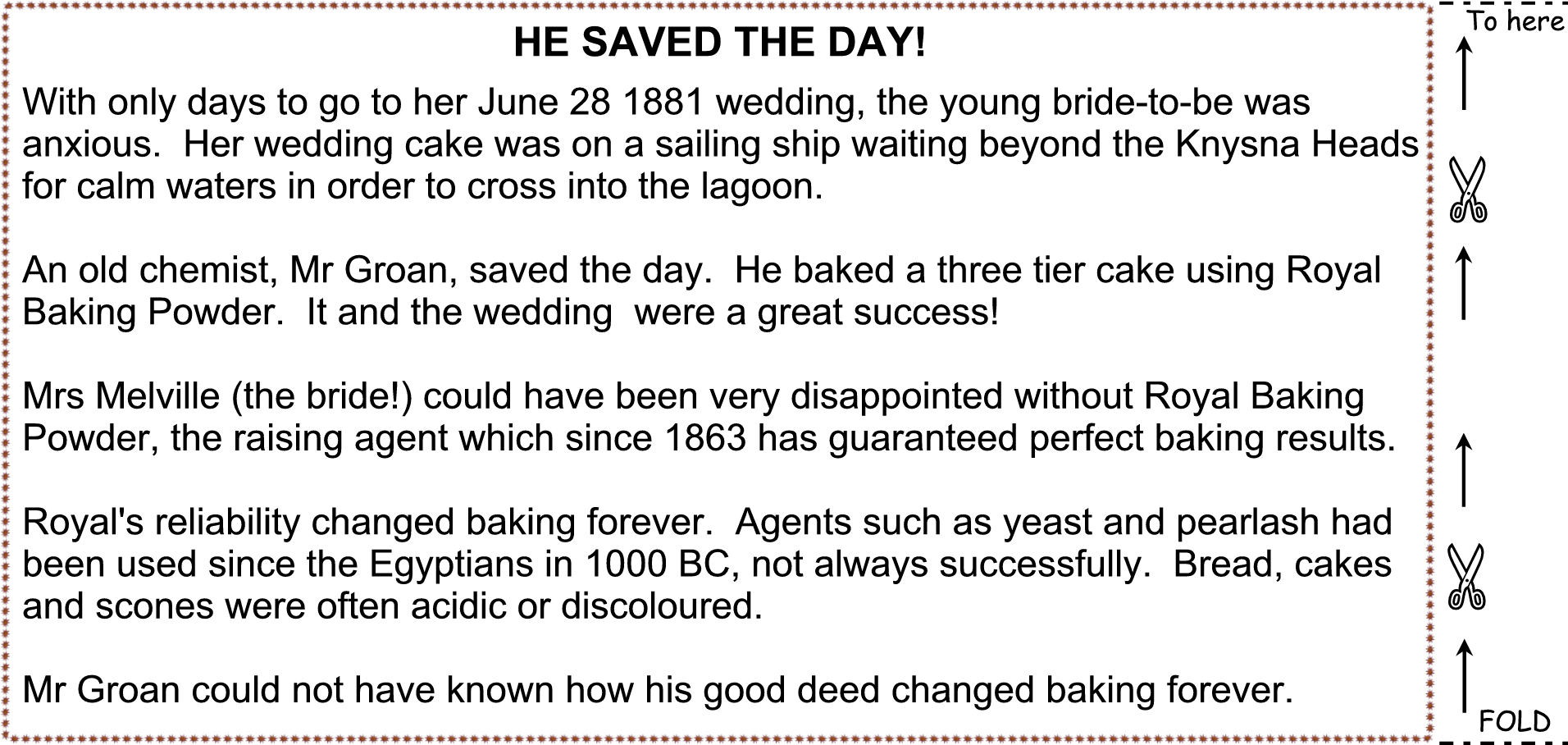| << Chapter < Page | Chapter >> Page > |
ACTIVITY 1
TO SUMMARISE THE STORY WITH SUPPORT
[LO 1.1.7]
Listen to your teacher as she reads an extract to you twice.
Listen first for the main points; secondly for the details.
What is this extract about (main idea)? Tell this in only TWO sentences.
Here is enough space for you to try more than one option – write your best attempt at the bottom of the page.
ACTIVITY 2
TO READ FICTION AND NON-FICTION AT AN APPROPRIATE READING AND LANGUAGE LEVEL
[LO 3.6.1]
LET’S READ!
Do you still remember what we learnt in Module 3?

In this module we are going to practise these three concepts again.
CHALLENGE!
Find an exciting story (use the library!) – one with PLENTY of action and suspense – and select a really exciting section to practise and READ!
ACTIVITY 3
TO TELL A STORY [LO 2.4.1]
TO PERFORM A SIMPLE PLAY [LO 2.4.2]
TO WRITE A PLAY SCRIPT [LO 4.3.1]
TO REWRITE AFTER FEEDBACK [LO 4.5.4]
GROUP WORK
Finger puppets
You will need:
Stiff paper; cardboard; empty toilet rolls.Pair of scissors and good glue.
Coloured scraps of paper; raffia; wool. Corrugated cardboard; bits of fabric.
Sellotape.
Ribbon; string; pencils and kokis
Your educator will show you how to make finger puppets.


(plot/storyline) This is a play about ____
Prepare your script as follows:
| Name of speaker: | Words spoken |
| CHECKLIST YES NO | ||
|
||
|
||
|
||
|
||
|
||
|
||
|
||
|
||
|
||
|
||
|
||
|
||
|

LO 1
LISTENING The learner will be able to listen for information and enjoyment, and respond appropriately and critically in a wide range of situations.
We know this when the learner:
1.1 understands stories (told or read to learners):
1.1.7 summarises the story with support;
1.5. respects other learners:
1.5.3 encourages other group members to support fellow learners.
LO 2
SPEAKING The learner will be able to communicate effectively in spoken language in a wide range of situations.
We know this when the learner:
2.1 interacts in an additional language:
2.1.2 takes part in a conversation on a familiar topic;
2.1.3 expresses an opinion and gives a reason for it;
2.3 uses additional language to communicate information:
2.3.4 describes the purpose of something (e.g. a familiar tool and what it is used for);
2.4 uses additional language creatively:
2.4.1 tells a story;
2.4.2 performs poems, songs and simple plays;
2.4.4 imagines and describes possibilities.
LO 3
READING AND VIEWING The learner will be able to read and view for information and enjoyment, and to respond critically to the aesthetic, cultural and emotional values in texts.
We know this when the learner:
3.6 reads for pleasure:
3.6.1 reads fiction and non-fiction at an appropriate reading and language level;
3.6.4 solves word puzzles;
3.7 uses reference books and develops vocabulary:
3.7.1 uses a dictionary;
3.7.2 demonstrates a reading vocabulary of between 2 000 and 3 500 common words.
LO 4
WRITING The learner will be able to write different kinds of factual and imaginative texts for a wide range of purposes.
We know this when the learner:
4.1 writes to communicate information:
4.1.6 expresses an opinion in writing and gives reasons for it;
4.3 writes creatively:
4.3.1 writes a play script or dialogue;
4.5 treats writing as a process, and uses developing knowledge of language structure and use:
4.5.4 rewrites after feedback.
Read the extract twice to the learners, fairly slowly.
Their instruction is to summarise the main idea of the ‘story’ in not more than TWO sentences.
This article can be given to the learners beforehand or after the exercise. For this reason it has been designed to be cut and folded (not to be seen until instructed).

Allow learners to write their summaries on newsprint to display in the class for purposes of discussion. Discuss the various answers given. Allow the learners to decide whose summary is better and why.
Discuss the use of full sentences, clarity, simplicity, correct punctuation and spelling.
ACTIVITY 2
LET’S READ! Do you still remember what we learnt about in Unit 3?

Practise these three concepts again.
A checklist is provided for the learner to complete and a group reading assessment scale is provided for the follow-up task.
By group-reading the following is meant: allow the learners to practise an extract as a mass reading / choral-verse reading. Only once they have practised as a group, should you allow them to read for assessment.
ACTIVITY 3
This is a group activity! Show the learners how to make finger puppets.

Instructions on how to continue with planning the play, writing the drafts and then the final play, are provided and can be found in the learners’ module. Remind the learners
1. New speaker – new line
2. Leave a line open between speakers
3. No inverted commas
The way of writing the play has been set out very clearly so that there is no confusion.
Make sure the learners understand the meanings of plot/storyline.
This is an exciting way to end off the series of modules. Go through the notes in the Learners’ module with the class. You will find that your learners will ‘go to town’ with this task. Allow them freedom, within parameters.
This might even be a good task to film on video. The learners will be quite interested to see their productions on ‘TV’. There might be some parents who can help with this.
Now it is time to judge their best work – have a class exhibition perhaps ?

Notification Switch
Would you like to follow the 'English first additional language grade 5' conversation and receive update notifications?